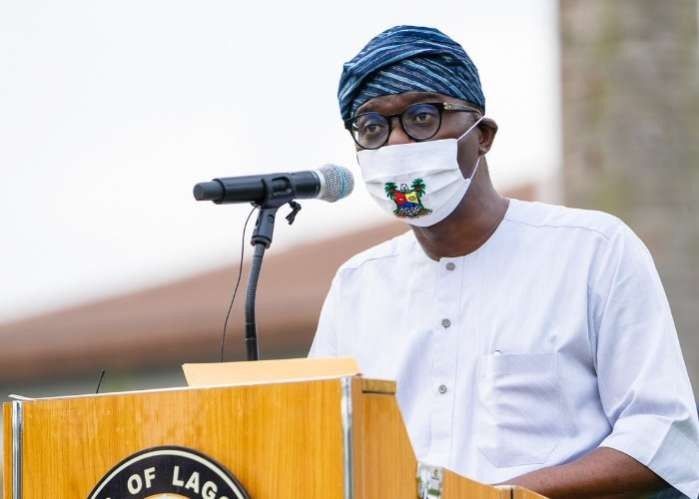Mixed reactions trail Lagos guidelines on re-opening economy

Varied reactions greeted Friday’s roll-out of guidelines for Lagos State post-lock down businesses re-opening by Governor Babajide Sanwo-Olu.
Speaking at a webinar organised by First Securities Discount House (FSDH) Group, Sanwo-Olu had, in what he called ‘Register-to-open’, said government was concerned about balancing the reactivation of economic activities and the continuation of the state’s response to contain the coronavirus (COVID-19) pandemic.
In the four-page ‘Register-to-Open’ guidelines, Sanwo-Olu said government’s strategy is to prevent job loss in critical industries that provide employment for a large number of labour.
The content of the guidelines has however, elicited reactions from critical sectors of the Lagos economy.
In his comment, Dr. Muda Yusuf, Director-General, Lagos Chamber of Commerce and Industry, said the move to gradually open up Lagos economy was a welcomed development.
“We cannot perpetually lock down the economy. Some key sectors have been under complete lock down for two months – hospitality, aviation and entertainment. Others are still on partial lock down – trade and commerce, road transportation and maritime. These sectors are the lifeblood of the Lagos economy. We share the concerns of the state government in this respect. Of course health security is important, but economic security is no less important.
The pursuit of these two objectives are not necessarily mutually exclusive. If anything, they are mutually reinforcing”, he said. “I am aware that government had robust stakeholder engagements to discuss the strategies for the gradual easing of the lock down. There are conversations around COVID protocols for different sectors. I am optimistic that there will be high level of compliance by business owners in these sectors. Most are well structured businesses.
“It is bad enough that the external sector of our economy has practically collapsed following the slump in crude oil price. We should not allow the domestic economy to collapse. We should undertake a comprehensive sectoral risk assessment to guide the economic reopening strategy.
“The Nigerian economy is big and its resilience is in its size, diversity and the entrepreneurial disposition of its citizens. Further restrictions on the economy can only worsen the woes of the citizens.”
Mr. Teslim Shitta-Bey, Managing Editor, Proshare, said Lagos government plan on businesses registration can only make sense as long as it does not come with charges.
“Data gathering is vital to effective state management. You cannot manage what you cannot measure. Lagos depends heavily on commerce for its internally generated revenue (IGR) and SME sector. Unlocking the economy was inevitable, but the state has to follow through with proposed contagion containment initiatives through space management and environmental protocols”, Shitta-Bey said.
He advised government that distancing protocols would be critical to keeping the state economy open while bootstrapping taxes and revenues.
“The new normal would require rethinking social spaces and providing services with minimal physical contact. The full implications of physical limits in social interaction would unfold as months go by, but mental health challenges may be part of the unforeseen ‘Cobra effect’.
“Giving priority to our elders in social interface re-establishes the primacy of a core aspect of our African mores and cosmology.”
On his part, Dr. Kunle Ogedengbe, Fellow of the Nigerian Institute of Public Relations, said reopening the Lagos economy is overdue as Lagos is the most economically viable state in Nigeria. “Locking its economy for long will hurt not only Nigerians but also some of our West African neighbours. This is because these neighbours depend on Nigerian economy through Lagos for their economic well-being.
Ogedengbe said government’s efforts to manage hunger, engaging with players in fast-moving consumer goods sector and giving them additional clearance to work for longer hours, shows the humanity side of Governor Sanwo-Olu.

